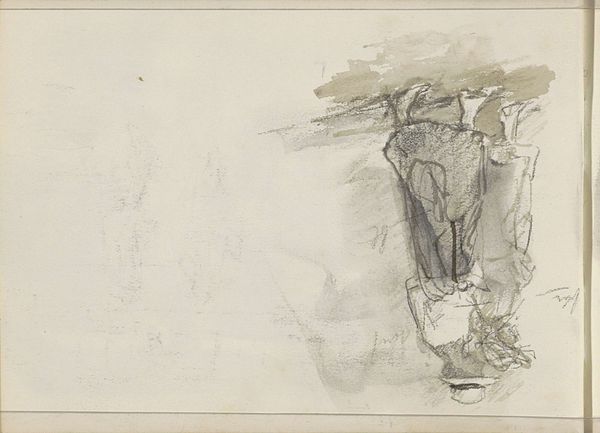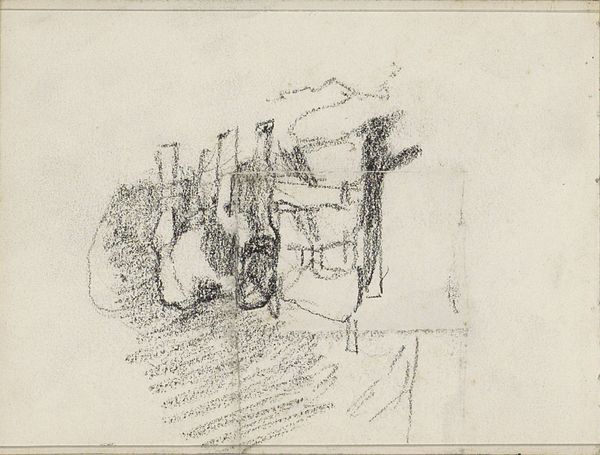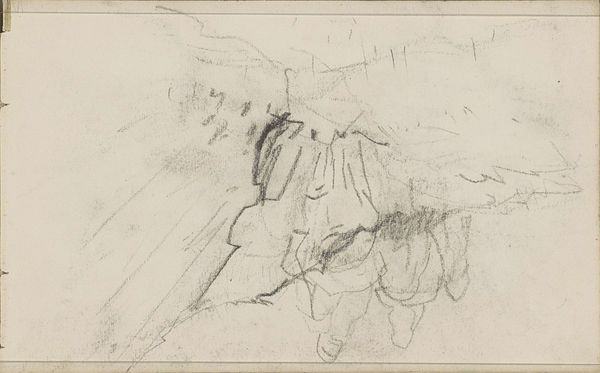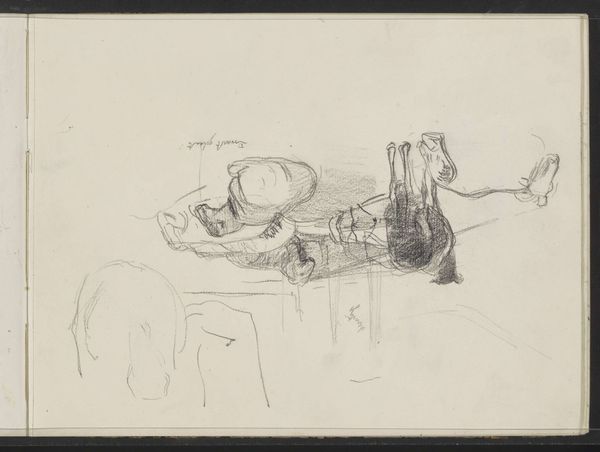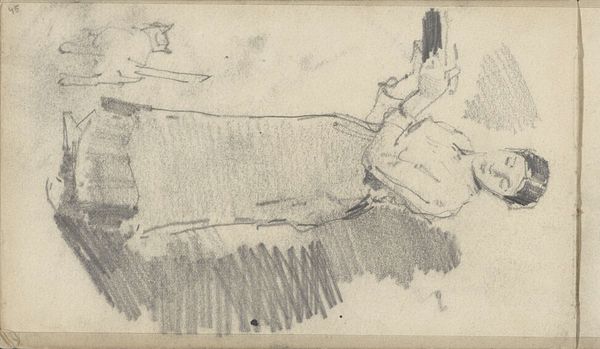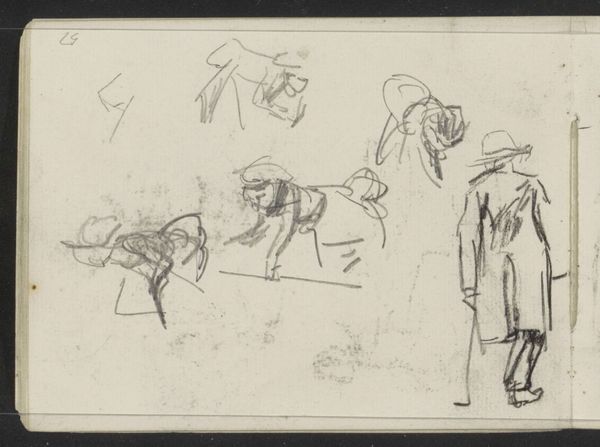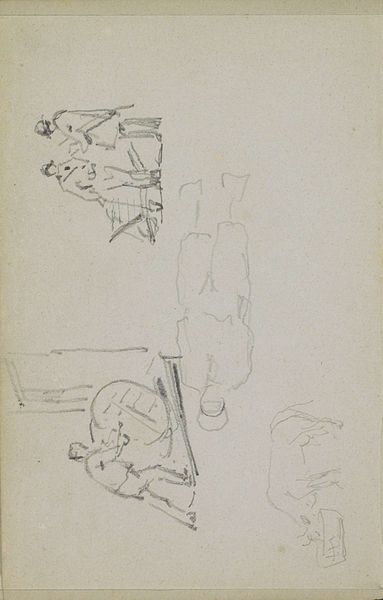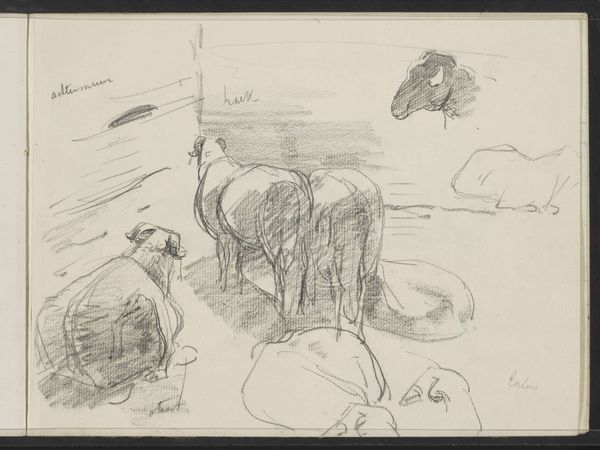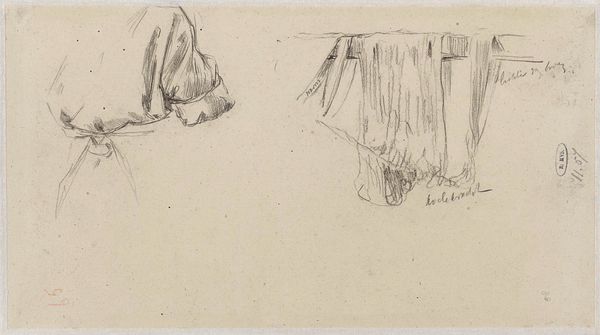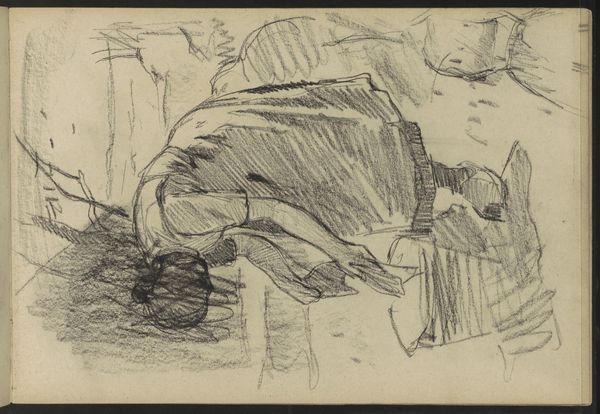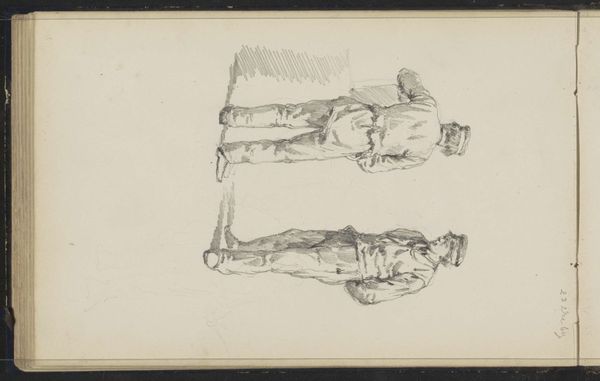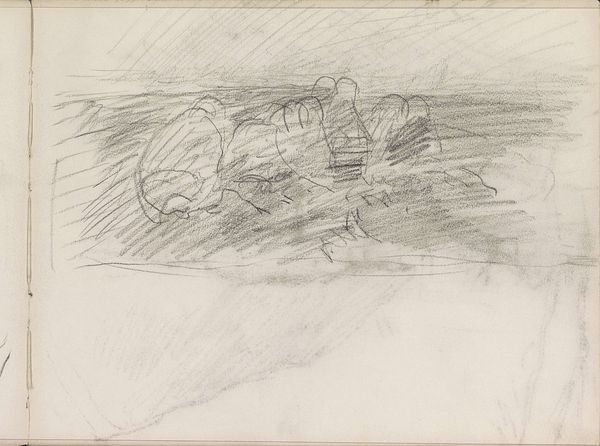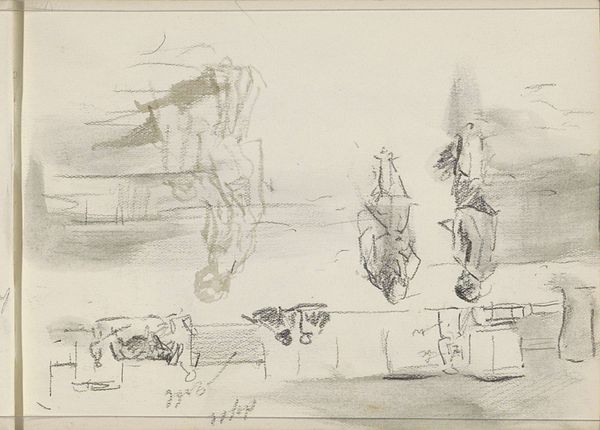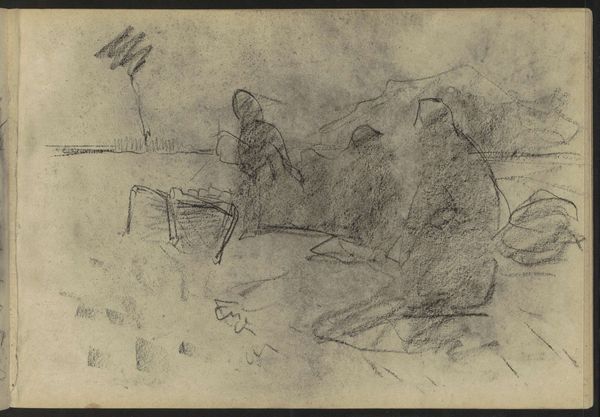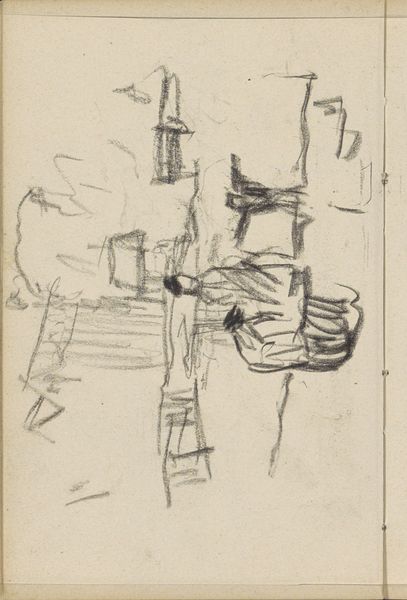
drawing, paper, pencil
#
portrait
#
drawing
#
pencil sketch
#
figuration
#
paper
#
pencil
#
genre-painting
#
realism
Copyright: Rijks Museum: Open Domain
Editor: This is "Twee kinderen aan zee," or "Two Children at the Seaside," a pencil drawing on paper made around 1920 by Johan Antonie de Jonge. It's quite a simple sketch, and I'm immediately drawn to the innocence it captures. What strikes you when you look at it? Curator: The apparent simplicity, I think, belies a complex social reality. De Jonge's snapshot of children by the sea invites us to consider the evolving concept of childhood in the early 20th century. The drawing’s existence points to an increased cultural emphasis on childhood innocence and leisure, accessible perhaps more readily to certain classes than others. What do you notice about their clothing, for instance? Does it suggest anything about their socio-economic background? Editor: I see that their clothes, though rendered in simple lines, seem well-kept, maybe even suggestive of a certain privilege. So, you’re saying this seemingly simple drawing might be reflecting broader social structures? Curator: Exactly. Think about the rise of seaside resorts during this period. They were spaces of leisure and escape, often frequented by the bourgeoisie. These children at the beach, in this context, embody the ideals of a particular class and era, a society grappling with industrialization, shifting social norms and power dynamics that played out even in leisure spaces. Who has the right to leisure? Who has access to these coastal spaces? Editor: It's interesting to consider this seemingly carefree image as part of a much larger cultural and political narrative. Curator: Precisely. By examining art through a socio-political lens, we can understand how representations, even those that seem purely observational, often reinforce or subtly critique prevailing power structures. It makes you wonder whose stories are not being told, doesn't it? Editor: It really does. I'll definitely look at art differently now. It's amazing to see how much a simple drawing can reveal. Curator: Indeed, and how much more there is to learn!
Comments
No comments
Be the first to comment and join the conversation on the ultimate creative platform.
